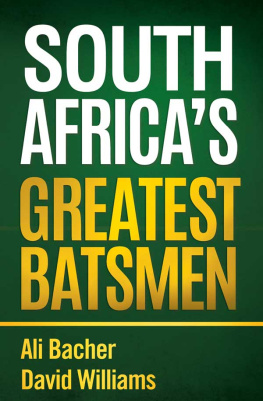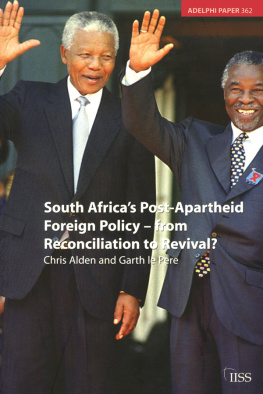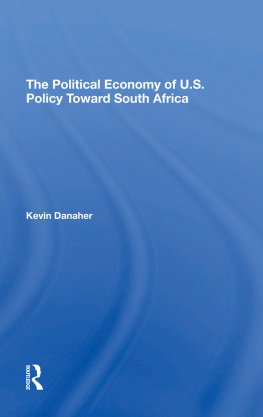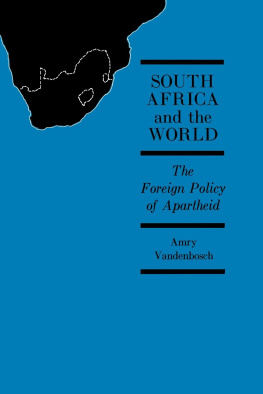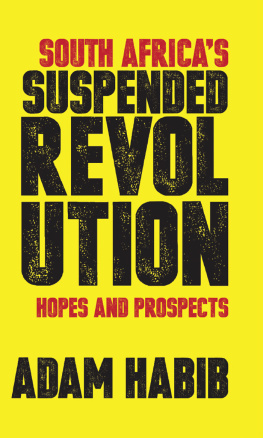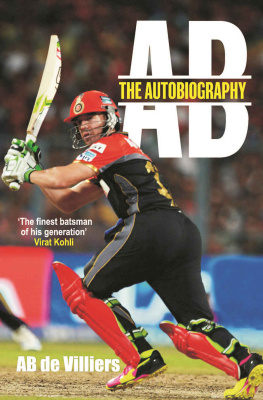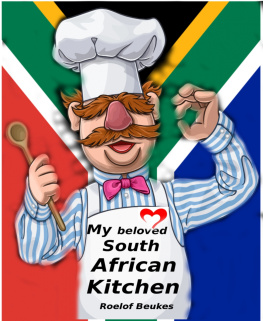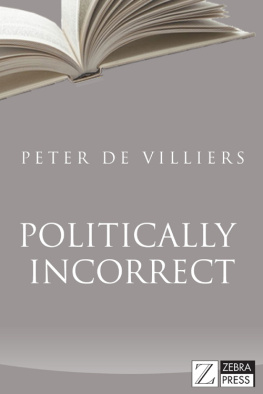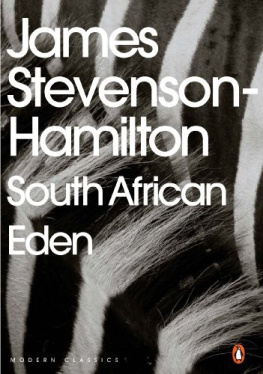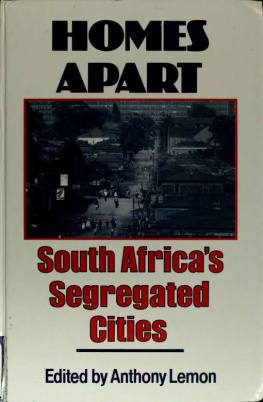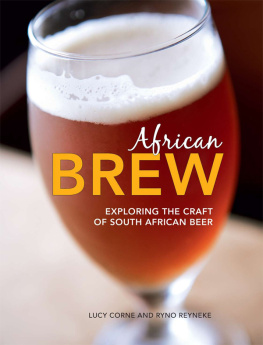About the Authors
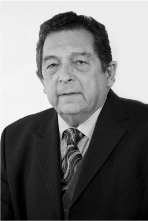
ALI BACHER was educated at King Edward VII School (captaining the 1st XI and Transvaal Nuffield XI) and Wits University, where he studied medicine. He captained Transvaal aged 21 and played 12 Tests between 1965 and 1970, when he captained South Africa to a 4-0 Test whitewash of Australia. He went on to a distinguished career in cricket administration, culminating in the hosting of the 2003 World Cup in South Africa. He is chairman of the AIDS charity Right to Care.

DAVID WILLIAMS was also educated at King Edward VII School (he played rugby for the 1st XV and Transvaal Schools) and Wits University, majoring in history, political science and English. David was deputy editor of the Financial Mail , and has worked extensively in radio (notably on 702 and Highveld) and television. He is now senior anchor on the daily Business Tonight TV programme on CNBC Africa Channel 410.
WE CELEBRATE SOUTH AFRICAS GREATEST BATSMEN


Published by Penguin Books
an imprint of Penguin Random House South Africa (Pty) Ltd
Reg. No. 1953/000441/07
The Estuaries No. 4, Oxbow Crescent, Century Avenue, Century City, 7441
PO Box 1144, Cape Town, 8000, South Africa
www.penguinbooks.co.za
First published 2015
1 3 5 7 9 10 8 6 4 2
Publication Penguin Random House 2015
Text Ali Bacher, David Williams and Krish Reddy 2015
All rights reserved. No part of this publication may be reproduced,
stored in a retrieval system or transmitted, in any form or by any means,
electronic, mechanical, photocopying, recording or otherwise,
without the prior written permission of the copyright owners.
PUBLISHER: Marlene Fryer
MANAGING EDITOR: Robert Plummer
EDITOR: Alison Lowry
PROOFREADER: Pam Thornley
ISBN 978 1 77022 865 8 (print)
ISBN 978 1 77022 866 5 (ePub)
ISBN 978 1 77022 867 2 (PDF)
Contents
Authors Note
W e have a combined 116 years of passionately following the game of cricket in South Africa.
Ali remembers going to Ellis Park in 1949 with his uncle to watch the touring Australians. I can remember it like it was yesterday. That started a lifelong love affair with the game. Apart from Herby Taylor, he has personally known every player selected to appear in this book.
He believes that the history of South African cricket falls into two eras. The first was from the 1880s to the 1950s. In that time we were always number three to Australia and England. We hardly had a fast bowler and our batting was always defensive. We had no Larwood, no Tyson, no Constantine. Then came Neil Adcock, Peter Heine and Peter Pollock, and our bowling began to be aggressive and effective with a great line going through the likes of Mike Procter, Allan Donald, Makhaya Ntini and Dale Steyn. They enabled our batsmen to be aggressive and make big scores quickly.
David was aware via Charles Fortunes radio commentary on the exploits of the South African teams in Australia and England in the early 1960s, but he attended his first Test match (also with his uncle) in December 1966, when the Springboks were playing Bobby Simpsons touring Australians. Having listened to the SABCs ball-by-ball commentary on the early stages of the match on shortwave radio, he was at the Wanderers Stadium when Ali was run out for 67, in South Africas second innings of 620.
Unlike Ali, he failed to make the grade at cricket at King Edward VII School, playing as a leg-spinner for the 4th XI; he did make his mark in other sports, winning colours in rugby and athletics. But he became devoted to cricket as a school scorer, coach and umpire, and as a broadcaster and writer on the game and he worked for many years as the public address announcer at the Wanderers. This culminated in his being asked by Ali to organise the PA operation for the 2003 ICC Cricket World Cup in South Africa.
We have known each other for 35 years, united by our background at a great cricketing school and our passion for the game. We have so enjoyed exploring and debating the records of our great batsmen, and sharing our conclusions.
ALI BACHER
DAVID WILLIAMS
JULY 2015
Introduction
B atsmen in Test cricket are regarded as excellent if they achieve a career average of more than 50. At the end of December 2014, of those from all countries who played at least 20 innings, only 39 men had managed to average 50 runs per innings in the 137 years since the first Test between England and Australia in 1877.
One must be cautious in comparing the statistics of batsmen from different eras. Scoring rates have risen in the last two decades. Until the post-isolation period, South African batsmen were tested mainly by the bowlers of England and Australia, and generally those two countries fielded powerful teams especially in the 1930s and 1950s. Modern batsmen have had the opportunity to boost their statistics with matches against weak sides from Bangladesh and Zimbabwe but have also had to deal with the pitches of the Indian subcontinent, which the old-timers did not.
Despite the variations, however, a batting average of 50+ remains the most important evidence of greatness. There are six South African batsmen who have achieved this: Dudley Nourse, Graeme Pollock, Jacques Kallis, AB de Villiers, Hashim Amla and Faf du Plessis (though the last three are still playing). This makes them automatic choices for our selection of great South African batsmen except Du Plessis, whose career has just started.
If a 50+ average is excellent, we can regard 45+ as very good (just 3 per cent of the 2794 men who had played Test cricket by the end of July 2015 had an average higher than 45) and 40+ as good. It would be hard to argue that anyone with an average lower than 40 can be regarded as great but some with an average between 40 and 45 might be seen as great for other reasons.
Greatness does not only derive from statistics, although they do provide an initial filter. In identifying the other players, we have also relied on written historical sources such as the Wisden Cricketers Almanack , ESPN Cricinfo, a range of cricket books, and contemporary newspaper reports; on comments by respected individuals like Sir Donald Bradman; and on personal experience and observation.
From the generation that played between the two world wars (1918 to 1939), our first choice is Herby Taylor (Test average 40.77; career 19121932), said to be the only batsman capable of dealing with the Englishman Sydney Barnes, who was regarded by experts at the time (and since) as perhaps the greatest of all bowlers. Taylors achievement of 508 runs in four Tests against England in 191314 at an average of 50.80 a series in which Barnes took 49 wickets at 10.93 each prompted Wisden half a century later to describe it as the most skilful of all Test performances by a batsman.
Three other players stand out from that era: Bruce Mitchell (48.88; 19291949), Dudley Nourse (53.81; 19351951) and Eric Rowan (43.66; 19351951). They established themselves as formidable players in the 1930s, providing the backbone of a weak side that was usually outplayed; they lost eight years of their careers to World War II; and they remained the countrys three best batsmen until they were in their forties.

